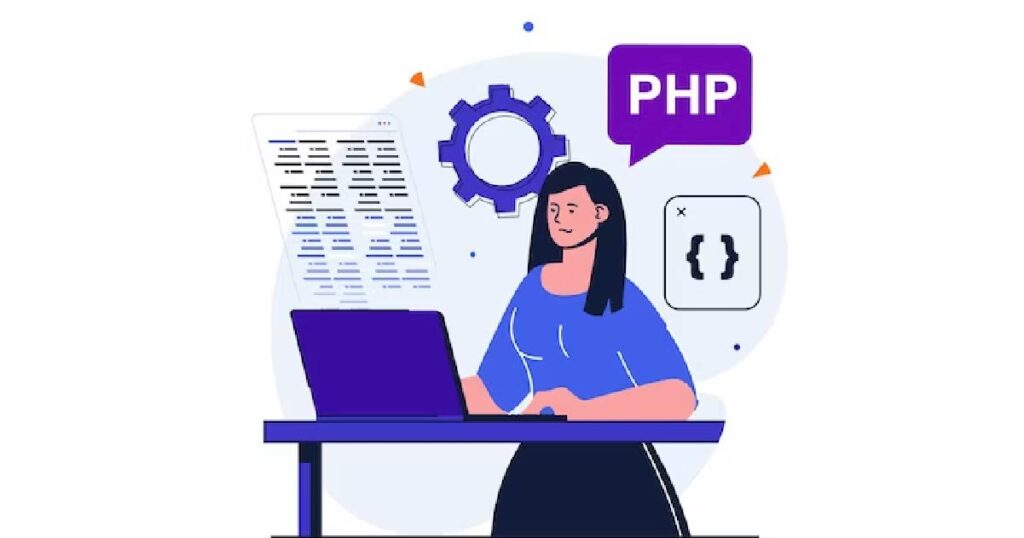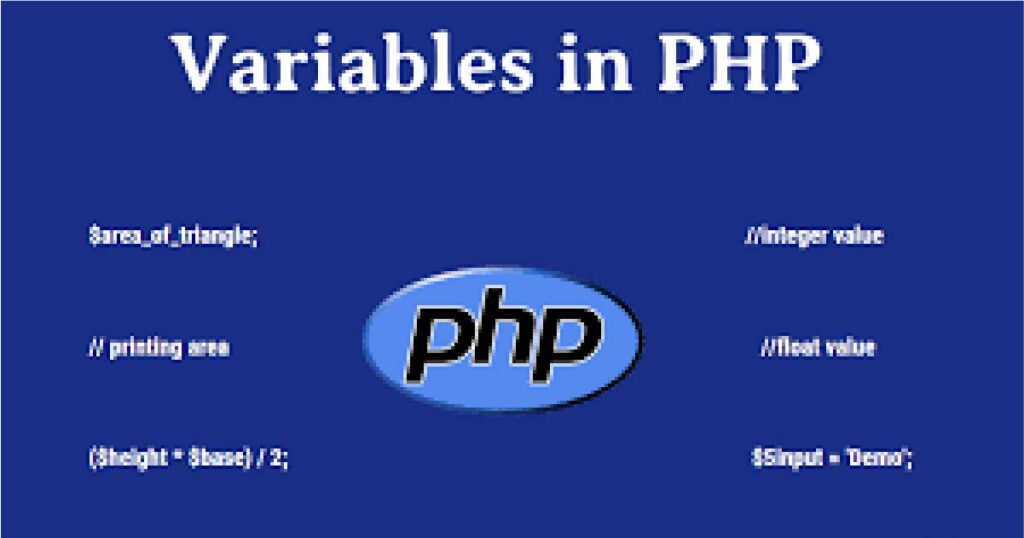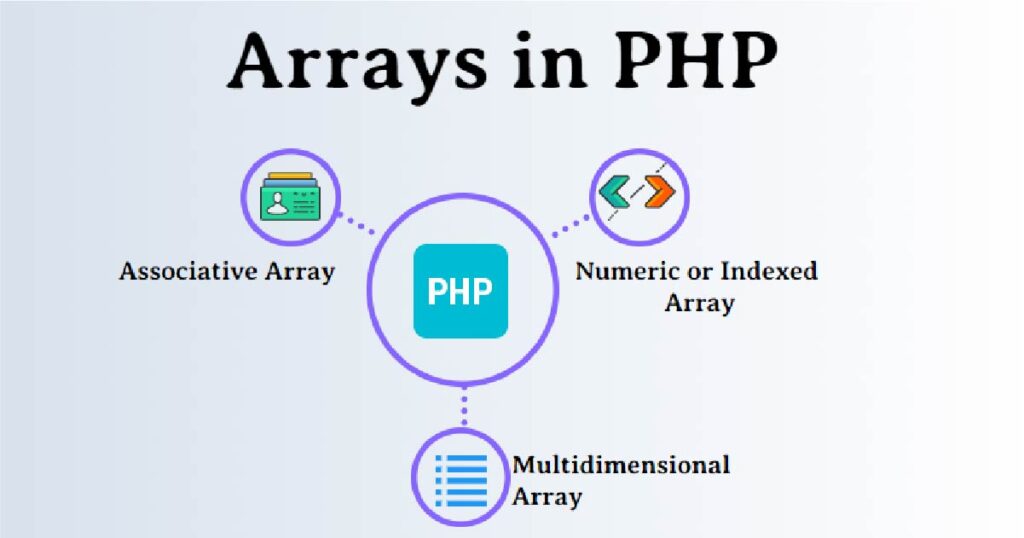Introduction
As a scripting language, PHP developed in 1994 by Rasmus Lerdorf, remains an essential tool in web development because of its community support, ease of use, and flexibility. As a server-side scripting language, PHP can create dynamic content, communicate with databases, and carry out other operations. Its evolution has been substantial, with performance enhancements brought about by the release of PHP 7.
It simplifies development and makes complex applications possible thanks to its extensive libraries and framework ecosystem, which includes Laravel, Symfony, and WordPress. PHP is still a fundamental component of web development in 2024; it powers well-known websites like Wikipedia, Facebook, and WordPress. With that said, nothing beats being well-prepared for PHP interviews as professionals in the field or even aspiring web developers.
To gain a competitive advantage over peers in the industry and open doors of opportunities to fulfilling and rewarding roles in the field, being and demonstrating proficiency in PHP is necessary. Reviewing PHP frequently asked questions equips candidates with valuable insights into what employers are looking for and helps them to confidently ace any interview that comes their way. This is where this article comes in - equipping candidates with the top 25 PHP interview questions with relating answers to help them thoroughly prepare for their interviews.
Why PHP Remains a Key Player in Web Development
Without doubt PHP remains a key player in web development due to its server-side processing that helps to generate dynamic content, interact with databases while performing various tsks. It is also compatible with widely used web servers and databases like Apache, Nginx, MySQL, PostgreSQL among others. Furthermore, PHP effortlessly integrates with frontend technologies like HTML, CSS and JavaScript while providing an ecosystem of libraries and frameworks.
The continued popularity of PHP among developers and companies in the digital age is no surprise. This is due to its ease of use and learning, large and active community base, versatility and flexibility in diverse development scenarios, cost effectiveness and wide adoption in the industry. This can be evidenced as most major platforms such as Facebook, WordPress, Etsy, and others rely on this scripting language as the backbone of their services.
PHP Basics Refresher
1. What is PHP and what does it stand for?

This is the first on our PHP interview questions list. The server-side scripting language PHP, which is short for Hypertext Preprocessor, is used in web development. It was first developed by Rasmus Lerdorf in 1994, and because of its C-like syntax, compatibility with a wide range of web servers, and vibrant development community, it has grown to become a cornerstone. PHP's versatility allows developers to integrate it into various technology stacks, making it a popular choice for building diverse web applications. It is often used in conjunction with HTML, CSS, and JavaScript to create comprehensive web solutions. Development is accelerated by PHP's rich ecosystem of frameworks and libraries, including Laravel, Symfony, and CodeIgniter.
2. How do you declare a variable in PHP?

Continuing with the basic PHP interview questions brings us to this. PHP allows variables to be declared by using the dollar sign $ followed by the variable name, which needs to begin with a letter or underscore and be case-sensitive. Different kinds of data, including strings, integers, floats, and Booleans, can be assigned to variables. A variable's assigned value indicates its data type. By default, variables are local, which means they are only present within the specified scope. It may be necessary to use global variables or pass variables as parameters to functions to make them accessible from different sections of the code.
3. Can you explain the different types of arrays in PHP?

The next on our PHP interview questions list is this. The four primary types of arrays available in PHP are object, multidimensional, associative, and indexed arrays. A numeric index, which starts at 0, designates an element's location within an indexed array. Associative arrays use named keys to associate values with specific identifiers, such as strings or integers. Similar to a matrix, multidimensional arrays comprise elements of other arrays. With their fixed size, object arrays such as SplFixedArray can provide better performance in some situations, particularly when handling large numbers of elements. These array types provide flexibility for organizing and manipulating data in PHP.
Intermediate PHP Knowledge
4. How do you handle errors in PHP?
This opens the way for our intermediate PHP interview questions. PHP offers various techniques for handling errors and exceptions. These include trigger_error(), error_log(), finally blocks, custom error handling functions, and the use of try and catch blocks. With the help of trigger_error() and user-defined error constants like E_USER_ERROR, these methods enable the controlled handling of particular exceptions, the setting of custom error handling functions, and the triggering of custom errors. Moreover, PHP has the error_log() function, which can be used to log errors to a file. This functionality proves useful in recording errors in a production environment. Critical errors may need to be logged and administrators notified, so it's critical to handle them appropriately based on the context and severity.
5. What are the different types of loops in PHP?
The four primary loop types in PHP are For, While, Do-While, and Foreach loops. When you know ahead of time how many times to run a block of code, you use a for loop. It has a step, an end, and a defined beginning. When a condition is true and is assessed prior to each iteration, a while loop is employed. Before evaluating the condition, the Do-While Loop makes sure that the code block is run at least once. Arrays and other iterable objects can be iterated over using the foreach loop, which advances to the next element automatically until there are none left. This is one of the most asked PHP interview questions.
6. Explain the concept of sessions in PHP.
PHP interview questions around sessions are to be expected. PHP sessions are used to maintain user information across multiple pages or interactions on a website. They allow for storage and retrieval of data associated with a specific user. When a user visits a website for the first time, a unique session ID is generated and usually saved as a cookie or passed through URL parameters. Session variables hold data that is available to the user for the duration of the session. Retrieving data is done on later pages or interactions. Security precautions like secure connection protocols and session cookies are essential for session management, which is carried out through session-related functions.
Advanced PHP Concepts
7. What are PHP frameworks, and which are the most popular in 2024?
One of the advanced PHP interview questions to expect is this. PHP frameworks are pre-built libraries and tools that provide a foundation for building web applications. Laravel, Symfony, CodeIgniter, Yii, Phalcon, and CakePHP are a few popular frameworks. Laravel is known for its elegant syntax, powerful features, and large community. CodeIgniter is a lightweight and user-friendly framework, whereas Symfony is adaptable and extensible. Yii is a high-performance framework with a caching system, AJAX and RESTful APIs, and database management features. CakePHP uses predefined conventions to simplify development, while Phalcon is a unique, fast, and efficient C extension. It's important to keep up with changes in PHP framework popularity and select the one that works best for your project.
8. Can you explain object-oriented programming in PHP?
The programming paradigm known as object-oriented programming, or OOP, arranges code according to objects or classes that stand in for actual things or ideas. In PHP, OOP is a fundamental approach to building complex and modular applications. Key concepts include classes and objects, encapsulation, inheritance, polymorphism, abstraction, interfaces, and abstract classes. Class definitions group data and methods together into a single unit, whereas encapsulation specifies an object's structure and behavior. Because of polymorphism, objects can adopt various appearances or actions depending on the situation.
9. How do you secure a PHP application against SQL injection attacks?
PHP interview questions are frequently asked in interviews. Use prepared statements and parameterized queries; steer clear of creating dynamic queries with user input; validate and sanitize user input; use least privileged database users; escape special characters; implement Content Security Policies (CSP); update and patch your database system on a regular basis; and monitor and log database activity to safeguard your PHP application against SQL injection attacks. By following these procedures, the likelihood of SQL injection vulnerabilities in your PHP applications is greatly decreased.
PHP in the Context of Full-Stack Development
10. How does PHP interact with databases?
MySQLi and PDO extensions are used by PHP to communicate with databases. MySQLi enables data retrieval, query execution, and connection establishment. Using a Data Source Name, PDO offers a consistent connection method for various database types (DSN). Both offer error handling, transactions, and advanced features. Because it is database independent, PDO is favored over MySQLi, which is favored due to its tailored MySQL optimizations.
11. Discuss the MVC architecture in PHP.
The next on the top 25 PHP interview questions is this. A web development design pattern known as Model-View-Controller (MVC) divides code into three primary parts: Model, View, and Controller. The View displays data to the user, the Controller manages the logic and flow of the application, and the Model represents the data and business logic of the application. MVC offers advantages such as separation of concerns, code reusability, testability, flexibility, and scalability, making it easier to build robust and maintainable web applications.
12. What is the role of Composer in PHP development?
Managing libraries, packages, and dependencies in a project is made easier with Composer, a PHP dependency management tool. It takes care of version constraints, autoloading classes, and installing, updating, and removing external libraries. Composer uses a centralized package repository, generates projectsketons, promotes code reusability, supports private packages, and allows for custom scripts and hooks.
PHP 8.x and Beyond
13. What new features were introduced in PHP 8.x?
PHP interview questions on newer versions of PHP are no surprise. In comparison to earlier iterations, PHP 8.x brought with it a number of enhancements and new features, such as union types, named arguments, constructor property promotion, attributes, match expressions, JIT compiler, and additional functions and classes. Performance, flexibility, readability, maintainability, type safety, and additional functionality for developers are all enhanced by these improvements. For the most recent information, it is crucial to consult the official PHP documentation.
14. How do you use arrow functions in PHP?
Featured in PHP 7.4, arrow functions are one-liner functions that are anonymous and have a simplified syntax. They do not support explicit return, are anonymous, support using variables by value, and capture variables from the surrounding scope. Higher-order functions and array functions frequently use them. They are not without limitations, though, and in more complicated situations, traditional anonymous functions might still be required.
15. What are attributes, and how are they used in PHP 8.x?
Attributes, which add metadata to code elements like classes, methods, properties, and parameters, were introduced in PHP 8.0. They provide a structured way to attach information, aiding in documentation, code analysis, and frameworks. Attributes can be accessed at runtime using Reflection, and their common use cases include documentation, web frameworks, validation rules, and Object-Relational Mapping.
Testing and debugging in PHP
16. How do you write unit tests in PHP?
One well-liked testing framework for automating code unit verification is PHPUnit. Install PHPUnit globally or as a project dependency using Composer in order to write unit tests. Using PHPUnit's TestCase class, create a test file and write test cases. Utilizing the PHPunit command, run tests and evaluate the outcomes. Tests should be isolated, contain edge cases, have descriptive names, follow the AAA pattern, use assertions, make use of mocks and stubs, and be updated frequently.
17. What tools do you use for debugging PHP code?
PHP interview questions on debugging are most often asked. Popular tools for debugging PHP code include Xdebug, Zend Debugger, PHPStorm, Visual Studio Code, NetBeans, Eclipse with PDT, DBG, PHPdbg, and Atom with PHP Debug Extensions. Strong features like variable inspection, step debugging, stack traces, profiling, and real-time code analysis are provided by these tools. The choice of tool is determined by the user's preferences, the needs of the project, and the particular features and integrations required.
18. Explain the importance of code profiling in PHP.
Code profiling in PHP is a crucial process for analyzing program performance to identify bottlenecks, inefficiencies, and areas for optimization. It is no wonder it makes our PHP interview questions list. It helps identify bottlenecks, optimize resource usage, improve response times, scale applications, validate performance improvements, prioritize optimization efforts, prevent premature optimization, validate code changes, enable continuous performance monitoring, and enhance user experience. It helps ensure efficient, responsive, and capable applications for real-world usage demands.
PHP and APIs
19. How do you consume RESTful APIs in PHP?
PHP interview questions such as this often pop up as the interview comes to an end. When using RESTful APIs in PHP, data is retrieved or sent by sending HTTP requests to external services or APIs. Using the curl extension or built-in functions like file_get_contents() and stream_context_create() are common methods. It's important to refer to API documentation for specific endpoints, authentication methods, request and response formats, and use modern PHP frameworks for additional features.
20. What are the best practices for API authentication in PHP?
API authentication is crucial for web services security and PHP interview questions from this side are to be expected. The use of HTTPS, tokens like JWT, OAuth, or API keys, data encryption, password handling security, the use of API keys, rate limitation, access control list definition, prevention of cross-site request forgery, and two-factor authentication are examples of best practices. Regular security audits, error handling, and regular education on security threats are also essential. These measures ensure secure API access and protect user data.
PHP and Security
21. Discuss common security vulnerabilities in PHP applications.
SQL injection, cross-site scripting, cross-site request forgery, file upload vulnerabilities, insecure direct object references, security misconfiguration, insecure deserialization, compromised authentication and session management, clickjacking, server-side request forgery, denial of service attacks, and vulnerabilities in business logic are just a few of the security issues that can affect PHP applications. To mitigate these risks, developers should follow secure coding practices, use secure authentication mechanisms, keep software updated, and conduct regular security testing.
22. How do you implement HTTPS in a PHP web application?
PHP Best Practices and Performance Optimization
23. What are the best practices for improving the performance of a PHP application?
Implementing asynchronous processing, optimizing session management, avoiding blocking operations, upgrading to HTTP/2 or HTTP/3, profiling and benchmarking code, optimizing autoloading, scaling horizontally and vertically, optimizing images and multimedia, using lazy loading, minimizing CSS and JavaScript files, using Gzip compression, utilizing opcode caches, and regularly monitoring and analyzing performance are some ways to improve the performance of PHP applications.
24. How do you handle data caching in PHP?
Obtaining an SSL certificate from a reliable CA, installing it on your server, configuring it to reroute HTTP requests to HTTPS, updating links and resources, confirming HTTPS in your code, testing your website, and routinely monitoring and updating your SSL certificate are the steps involved in implementing HTTPS in a PHP web application. By doing this, the server and clients can communicate securely and are shielded from new security risks.
The Future of PHP in Web Development
25. Where do you see PHP in the landscape of web development technologies in the next five years?
This is one of the PHP interview questions that is usually asked to see if you are invested in the language or not. In my opinion, PHP in the web development landscape will continue to develop in the coming years. It will continue to remain relevant, seamlessly integrate with front-end technologies, have newer versions with updated features and security and it may be diversified in its use cases.
Conclusion
To conclude, master the basics of PHP interview questions by covering topics on syntax, features, security, and best practices. To gain confidence and increase proficiency in PHP, practice, practical experience, and keeping up with industry trends are a must. Also, by keeping current with coding challenges, projects, and real-life scenarios, upcoming developers will be able to succeed in their PHP development careers and remain competitive. Build upon the top PHP interview questions in this post and be sure to excel in any interview you are called for.



